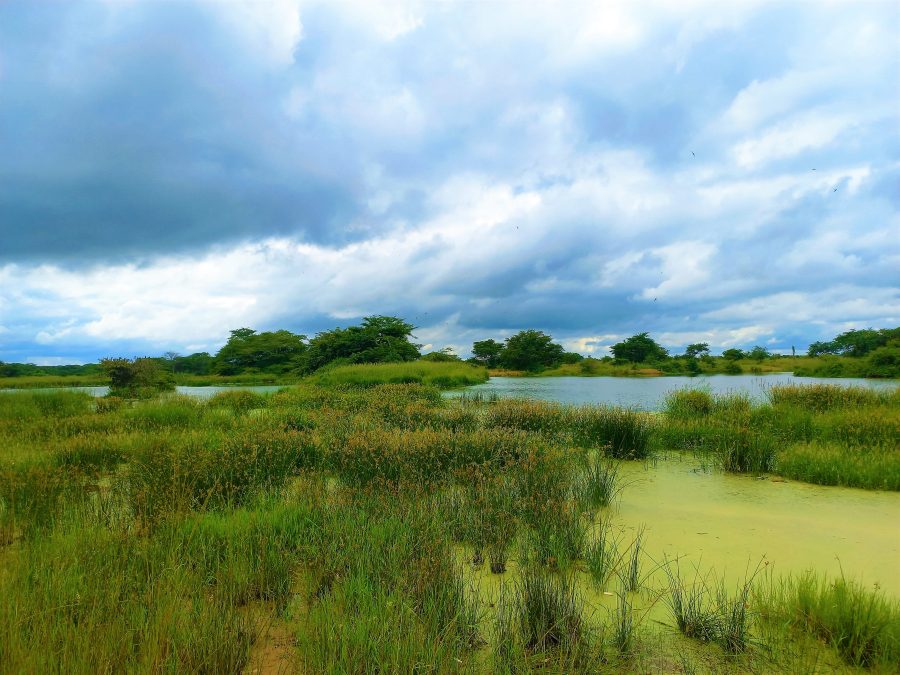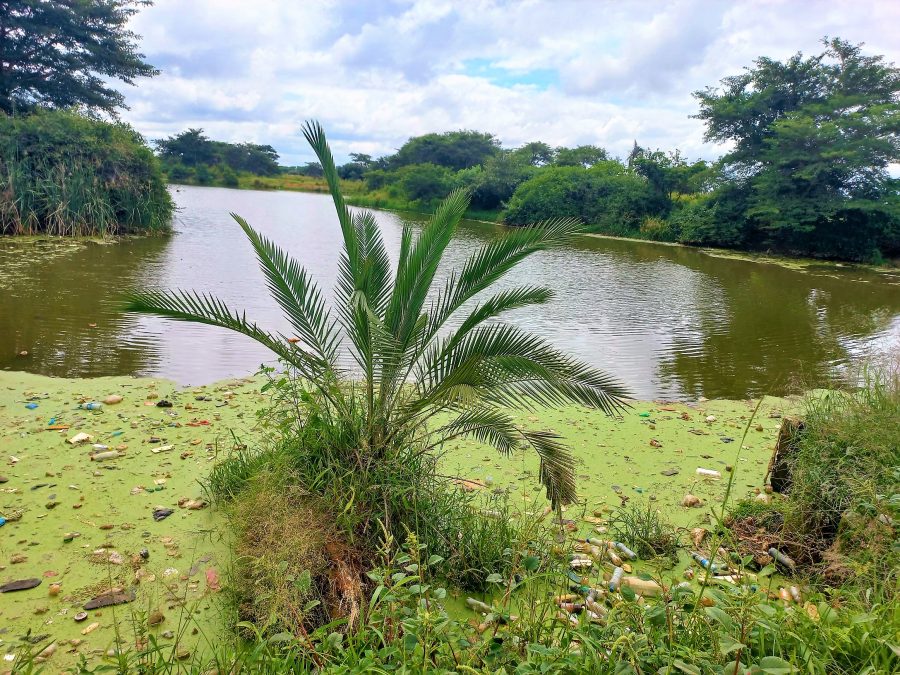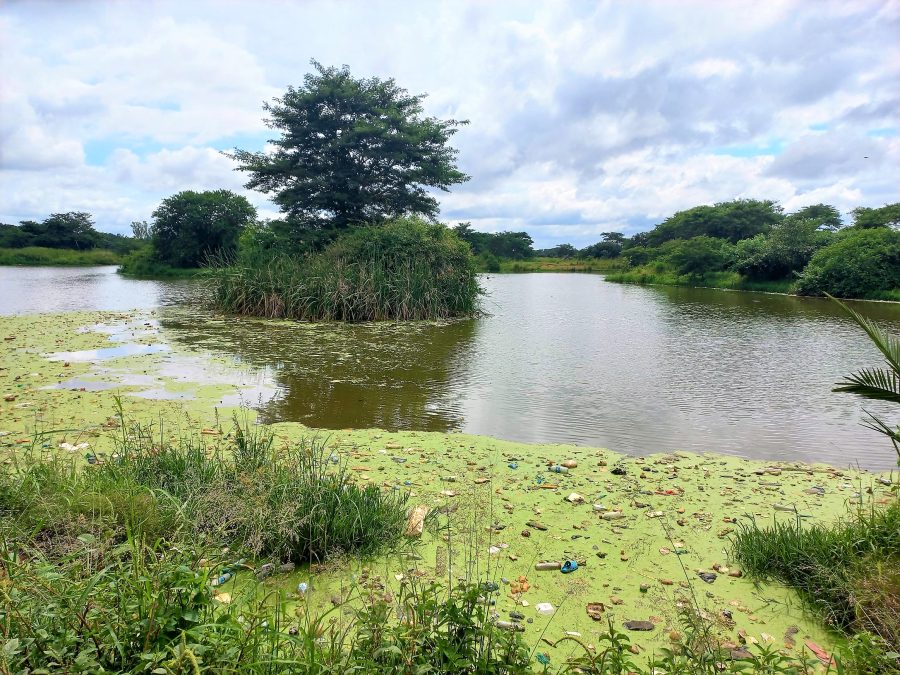Urban Wetland Protection in Lusaka, Zambia
The Natural Valley Wetland is one of Lusaka’s last surviving urban wetlands. Located just ten kilometres from the city’s airport, it is next to both residential and commercially zoned areas including Natural Valley Ltd, Zambia’s leading bottled water company. The wetland boasts extensive biodiversity, featuring a variety of flora and fauna, including birds such as the egret, blue heron, and Zambia’s national bird, the African fish eagle.

Copyright: GIZ
Due to its physical properties, the Natural Valley Wetland functions as a natural filter and purifier, improving the quality of water emanating from the city’s bombay drains, which flows through the major business and commercial districts of Lusaka before its discharge into the natural water system and percolation into groundwater reserves. By acting as a stormwater conduit and helping to purify wastewater, the wetland plays an important role in the water management of Lusaka.
However, the amount of plastic transported along the drain from the city represents a major challenge. Other threats include the seepage of lubricants and other hazardous liquid waste into the wetland through illegal dumping, more intense wet and dry periods due to climate change, cutting of trees, pilfering of plants, and poaching of native wildlife. By upsetting the natural lifecycle of the wetland’s ecosystem, whether through poaching or pollution, there is a great risk that the wetland will fail to thrive. Not only will this present a biodiversity loss for the area from the standpoint of preserving “green” spaces, but it will also negatively affect the wetland’s ability to keep rainwater during the rainy season, and filter groundwater as it percolates into the aquifer. The degradation poses a serious risk for the wetland’s provision of important ecosystem services.

Copy right GIZ
In 2013, Natural Valley Ltd., constructed a dam with a capacity of 330,000 cubic metres on their land to better conserve the complex yet delicate state of the wetland, improve water retention during the rains and improve the zone’s capacity to prevent local flooding. The company, though concerned about the huge amounts of plastic waste that accumulates in the wetland, envisions a future where this waste becomes “plastic gold” serving as a resource to be recycled, supporting the improvement of the environment, and creating more prosperous communities

Copyright: GIZ
NatuReS Zambia is working with Natural Valley and the Local Municipality Lusaka City Council under the LuWSI partnership to explore sustainable solutions to tackle the issues this urban wetland is facing. The goal is to reduce the flood risk, enhance environmental stewardship together with the surrounding communities, conserve the local biodiversity, promote micro-climate regulation, and inspire actors to collaborate in protecting the wider groundwater recharge area from contamination.
The marrying of public and business interests for the protection of groundwater is a vital ingredient in the collective stewardship of natural resources, especially in the conservation of one of Lusaka’s last urban wetlands.
Author: Sonile Mutafya, NatuReS Advisor Zambia